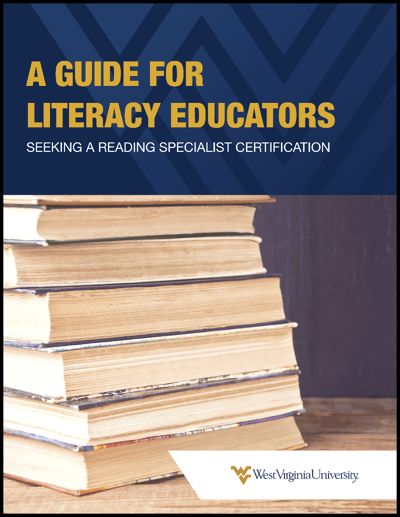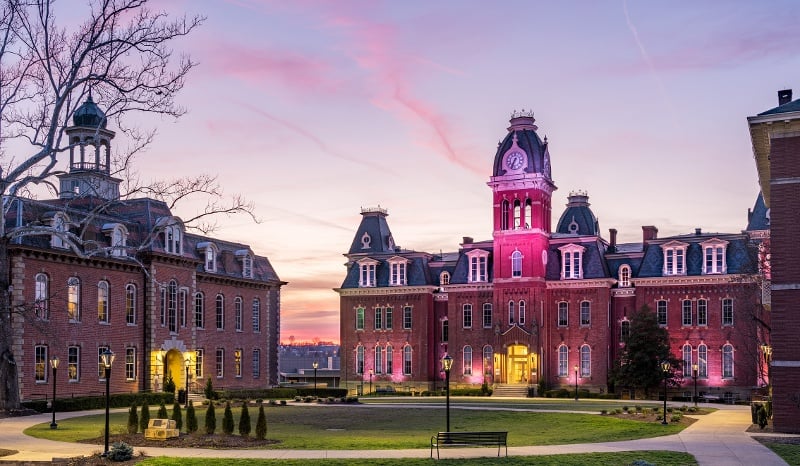Adam Shickley, a Pennsylvania resident who pursued West Virginia University's Master of Arts in Literacy Education, spoke with us about his decision to pursue this respected program, why pursuing a Reading Specialist Certification is worth it, how this 100 percent online program fit his busy schedule, and how the professors and fellow LE students have helped him to hone the skills needed to make a lasting impact in the schools he will go on to work for.
Tell me a little bit about yourself.
I'm Adam Shickley, 38, and I'm from Dauphin, Pennsylvania. I graduated with a bachelor's in criminal justice in 2003 from Shippensburg University.
Are you currently working in an educational setting?
I am currently working for the Capital Area Intermediate Unit, I am a special education teacher that focuses on Literacy Instruction. I started my career as a Special Education Teacher in 2008, after a few years, it became apparent that the one common theme that my students had was their ability and confidence in the area of reading.
After given an opportunity to work with educators in a small team to enhance student learning, and increase literacy skills, I was able to see how important literacy skills were to all other content areas.
Talk about your experience in WVU’s Literacy Ed program.
I loved my experience in the Literacy Education Program at WVU. This was a program where I felt challenged but still comfortable with the work load to grow. I did not enter the teaching profession in a traditional manner of preparation, and the Literacy Education program helped me gain confidence in my pedagogy, research, and coaching skills.
I was able to gain the confidence to truly believe I was a good teacher making the right decisions to best impact a students educational lives. I was able to learn not only about different assessments, and screening tools but how to effective utilize the data, and explain the decision making process to my peers. The amount confidence in my ability expanded exponentially through the support the instructors.
List some ways that WVU’s LE program prepared you to impact real, tangible change as a reading specialist.
I think the real impact was how to properly assess and address a student's needs as well as having a greater understanding of what the underlying cause of the students deficit in reading. The real-world focused coaching practice, and how to work with groups from 1-100 was beneficial. This coaching experience was invaluable in preparing me for a role in educational leadership, and understanding that leadership in education can come in many different forms. I was able to speak confidently regarding the data and understand what aspects a quality intervention program has.
What advice would you give to an aspiring LE student hoping to study at WVU?
If you are even just considering programs, I would highly recommend this program. What you will learn in this program relates to all aspects of teaching, from an elementary classroom, to teaching high school physics.
Learning how to be a literacy teacher will impact your instruction no matter what you decide to do in the future. It also opens doors to new opportunities and experiences.
What advice would you give to an aspiring LE student who is concerned with the idea of enrolling in a 100% online graduate program?
Let's talk about graduate school online. What amazed me the most was the connections developed with the professors. Even though I was enrolled at a university that was 3.5 hours from my home, I felt connected. I felt that a real personal connection was forged between the students and the professors. The flexibility and convenience of a 100 percent online program really out weighs everything else. I was able to complete this program while still working full time — and raising 3 daughters under the age of 10.
Lastly, tell me about one experience with a professor that really impacted your experience at WVU in a positive way.
There were many, but the one that sticks out is that, I was given feedback about my "voice," my writing. I have not always been good at writing in a formal sense. I submitted a paper, and for the first time, I was recognized for having a style and voice that crossed from the page to the reader. "I can hear your voice and passion" was the comment.
I honestly feel that was the moment that I stopped simply recycling the pages read, and truly started to make my learning my own. It was a simple moment, probably just a minor moment for the professor, but the impact on my confidence, and writing has been carried over into my career. I have decided that speaking passionately, and advocating with passion and facts, can have a lasting impact on the schools I work for.
WVU’s Master of Arts in Literacy Education:
West Virginia University offers a Master of Arts in Literacy Education, formerly known as Reading. The Literacy Education (LE) program is an advanced certification and master’s degree program that leads to pre-K through adult learning reading specialist certification in the state of West Virginia. Accredited by the Council for the Accreditation of Education Preparation (CAEP), this graduate degree is designed for candidates who hold a valid teaching license and who are seeking to add a renowned Reading Specialist certification to their current achievements.
The instructional design of the Literacy Education program is grounded in the WVU Online Conceptual Model. This model aligns the Community of Inquiry model (Garrison, Anderson, & Archer, 2000) with what is known about effective professional learning opportunities for in-service educators.
Further, in Spring 2019, West Virginia University’s Literacy Education graduate program was awarded the International Literacy Association Certificate for Distinction for the Preparation of Literacy Professionals (ILA CoD).
We hope you’ll connect with us soon by requesting more information or by starting your online application today. If you have specific questions about this resource or about the Literacy Education graduate program at WVU, we invite you to connect with the LE Program Coordinator Allison Dagen by phone at (304) 293-4417 or by email at allison.swan@mail.wvu.edu.

Looking to impact the lives of students in your community? Download our Literacy Education Guide today!










